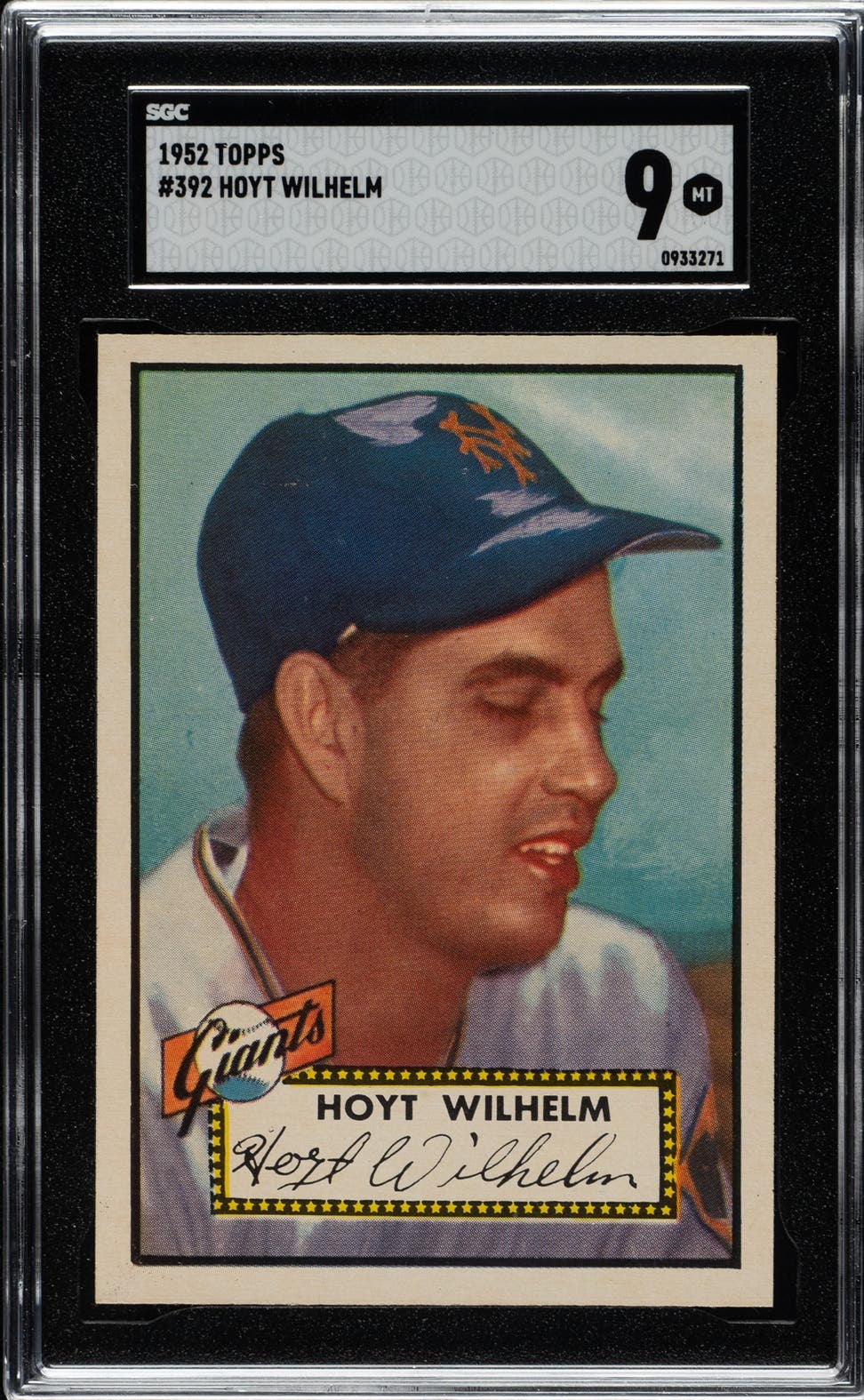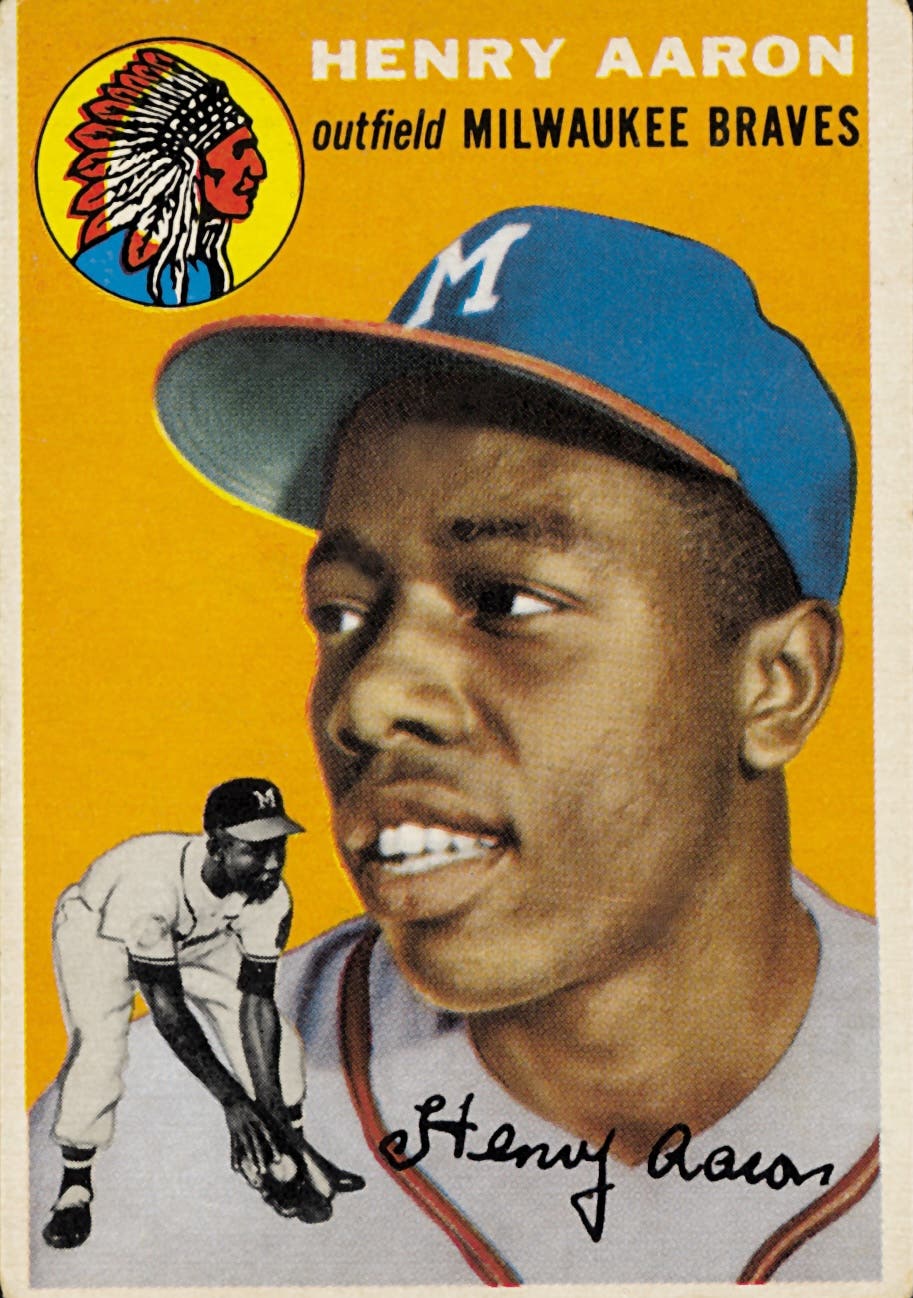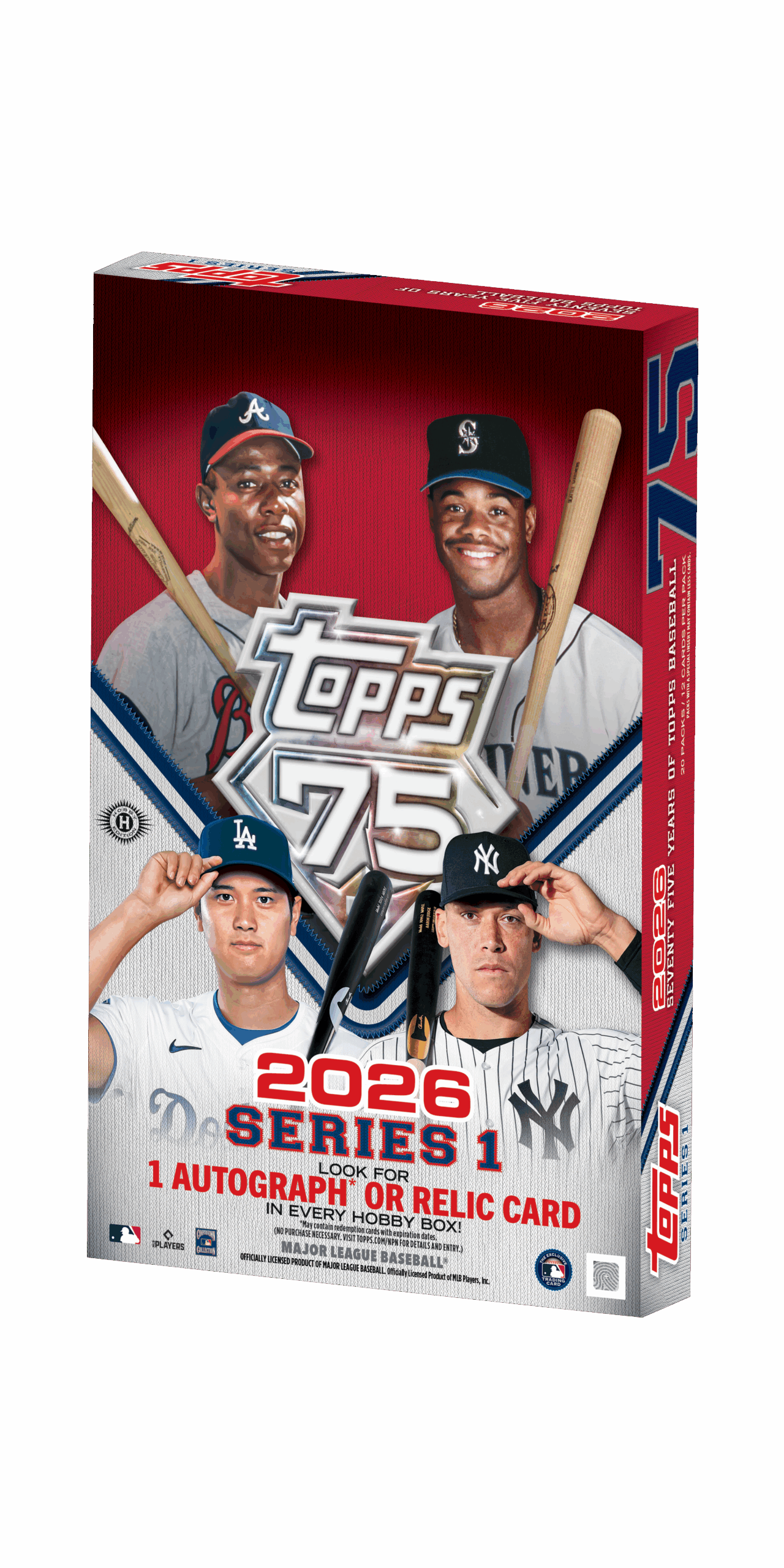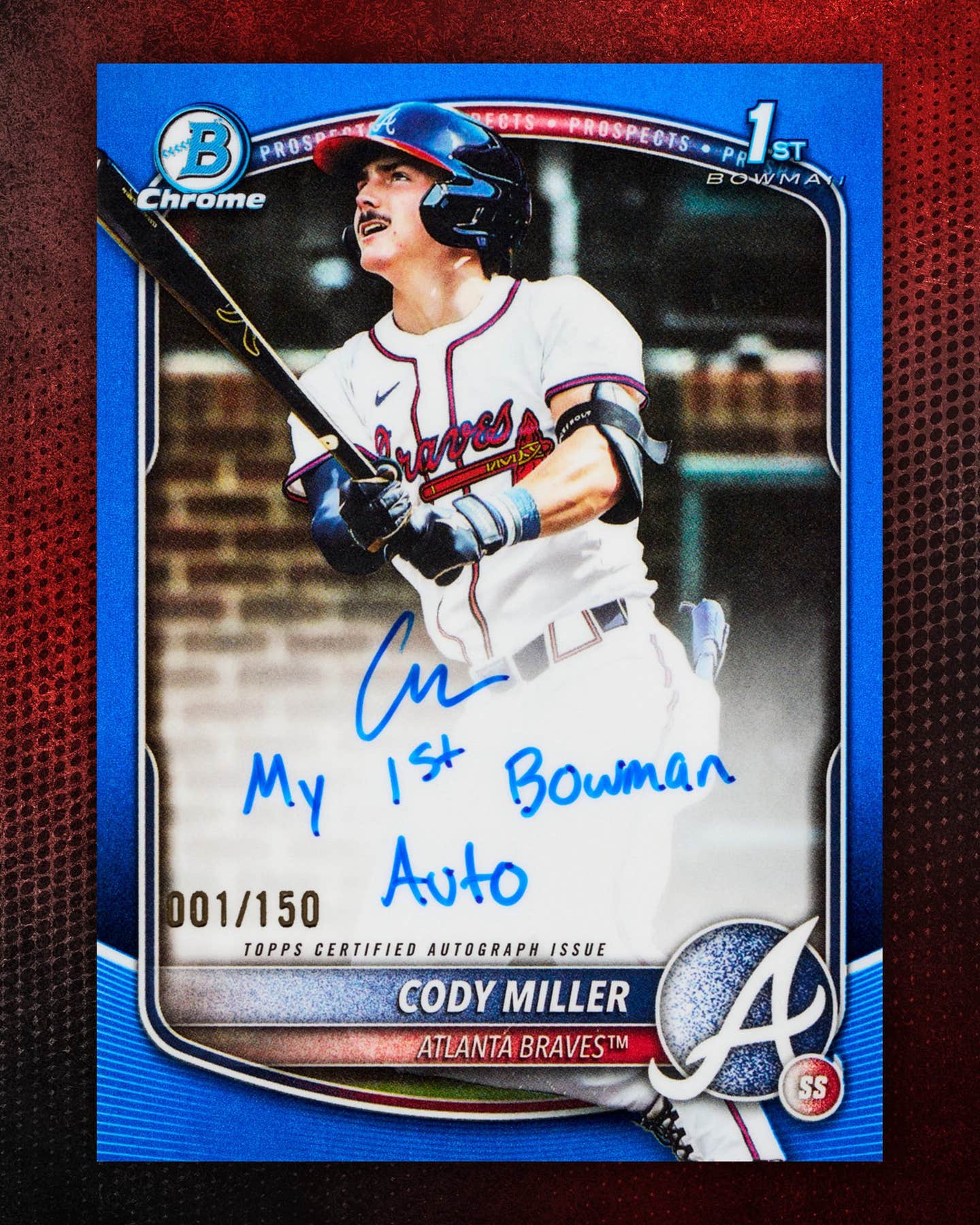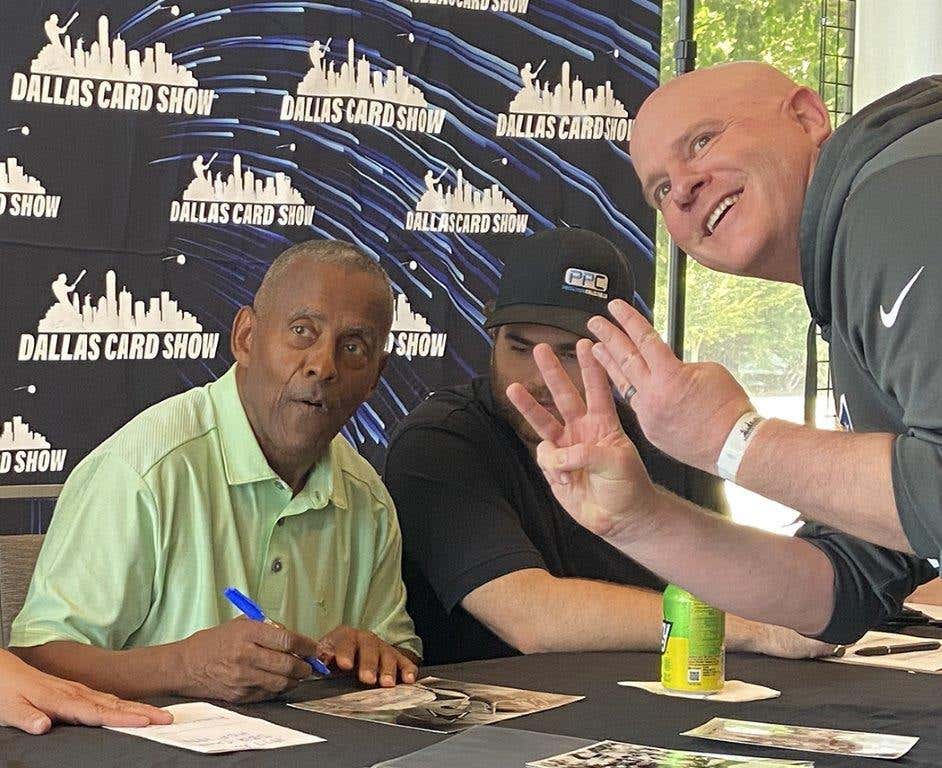Autographs
Shea Hillenbrand: Signing autographs for fans the ‘greatest gift’ for professional athletes
Former MLB infielder Shea Hillenbrand spent seven seasons in the big leagues, suiting up for the Boston Red Sox, Diamondbacks, Blue Jays, Giants, Angels, and Dodgers.
The two-time All-Star was a fan favorite in Boston, where excelled early in his career and had some memorable moments in Beantown.
Hillenbrand finished his seven-year career with a .284 career batting average with 108 home runs and 490 RBI.
In this exclusive interview with SCD contributor Tony Reid, Hillenbrand talks about growing up at Dodger Stadium, his first autograph at 13 years old, and stealing Ken Griffey, Jr. cards.
SCD: Your first card appeared in 1996 when you were with the Lowell Spinners and your actual rookie cards were in 1999 in a bunch of products such as Bowman, Bowman Chrome and some Upper Deck stuff. Do you remember the first time you saw yourself on a trading card?
“Yeah, that's a great question. I do remember the Lowell Spinners. I just came from junior college and when I was a kid, I grew up in LA and I sat at the top deck of Dodgers Stadium with my mom on my left and my best friend Robert on my right, we'd have season tickets and I had my nachos in one hand and my chocolate malt in my other hand, and I told both of them from 9, 10, 11 years old, I'm going to be playing down there someday. I really didn't care too much about the players. I didn't even get any autographs. I always envisioned that I wanted to play on that field. So one of the things that comes along with that big dream, that big journey, that big idea is the aspect of trading cards.
“So getting drafted by the Red Sox, it's funny because I was 20 years old when I was drafted and I told all my friends that I was drafted by the White Sox. I didn't even know what team I got drafted by. I mean, come on man. I grew up in L.A., you show up in the third, you leave in the seventh to beat traffic and you listen to Vince Scully on the radio. That's the consistency of a diehard Dodgers fan in the 1980s. So being able to see that first card for the Lowell Spinners was one step closer to that dream coming true, and it made it really surreal because if you think about it, not many people get that opportunity to truly have a baseball card as a professional athlete. Now they're doing it in Perfect Game, now they're doing it in the youth baseball tournaments. Now they're doing all this stuff to be able to sell and make money, which kind of dilutes the value of a baseball card.
So being able to have that was cool, and then you never know what's going to happen, right? I mean, those are the team sets. My picture in that card is like I'm taking a mugshot. It looks like I'm going to kill somebody. I'm like, ‘smile dude. It's alright to smile.’ But that's back in the days when you're young and you got to be serious because if I'm not serious, then they might think I'm a joke. It's just really funny to look back at the sets, the Bowmans, the Upper Decks, the Topps, being able to see one of your cards in that as a top prospect, like you said, my rookie card came out in 1999, but I wasn't a rookie until 2001. So being able to see that, that's kind of like, ‘Oh my gosh, I'm here. This is validation. I could actually sign this for fans.’ So it was really a memory to cherish.”
You Also Might Like:
The autograph experience is such a special one for fans, especially young fans. Do you remember the first time someone asked for your autograph?
“Absolutely. And the first time I was asked for an autograph was when I was 13 years old in my backyard. The kid, Terry that lived behind me, he's an immigrant from Greece, and we always went to school together and he says ‘I want your autograph. I want to be your first autograph.’ I have the goosebumps right now. It brings back just memories. I'm like, ‘What are you talking about, man? I'm just trying to pass my class, dude, in middle school. Autographs? I'm thinking about my girlfriend, man, autographs?’ So that was the first true autograph.
I met up with Terry three months ago and we reminisced over that time, but actually for my first autograph as a professional athlete, I really don't remember, but we need to understand as a professional athlete, it's so difficult to take care of everybody. It's so difficult to sign every autograph. I remember odd things I signed. People would take off their shoes and ask if I can you sign their shoe. Or kids would ask me to sign their nice designer shirt. I'm like, ‘Man, you need to ask mom about that because I don't want to ruin that because this is a Sharpie, this is a permanent marker. I know it might mean something to you, but mom might've just spent $60 on this shirt. She might be after my butt and be fooling me during the game because I signed your T-shirt.’
People ask me to sign their hands and their arms and females would ask me to sign other body parts. It's like, no that's not a good idea. But there's one thing that I always did and I want to make sure I convey this message. There's one thing I always did because I kind of struggled internally throughout my Major League Baseball career. I always made sure I smiled when I took a picture because I always made a pact with myself that every picture that you take, Shae, you need to make sure you smile. Regardless of what I was going through or the challenges or whatever things I was dealing with in my personal life or behind the scenes of a professional athlete, I think you'll never, ever, ever see a picture— you'll see baseball cards—but you will never see me take a picture with a fan that was not with a smile because I always thought, you never know what this person is going through in their personal life, and they might be towards the end of the rope. They might be one decision away from making a decision that might either be bad for themselves personally or whatever, and that interaction and that experience for them might give them one more day to get back on track. So, I always made sure I did that.
“But playing for the Red Sox, I mean there's autograph collectors that would pay little kids to come get our autographs and then inherently sell those. And then you have the autograph seekers in every town that are selling them, obviously because they got three or four pages of your baseball card for them to sign, and they would be at the hotel every time. And I didn't want to be that guy that was like, ‘Dude, he is an a-hole.’ So my trick to get out of signing those autographs from those professional autograph seekers that are waiting at the hotel behind that little barricade near the front door, I'd get out of the taxi real quick and I'd shuffle real quickly towards the front door of the hotel and I grab my behind. I'm like, ‘Sorry man, I got to poop.’ That would work every single time. Everyone can relate to that. So sorry, man, I got to go. And they're like, ‘alright, good luck. Make sure you make it to the toilet, wherever that might be.’ So you learn certain tricks or tips to able to choose who's making money, who's there.
“And then the hardest thing ever is when I'm on the field signing autographs before the game, whereas I have to get back to batting practice or I have to get ready and prepare for the game. We go through rigorous preparation processes to get ready and we only have so much time. So the hardest thing is I'd be signing autographs for an hour and I'm like, ‘I have to go.’ I'm getting internal anxiety because I have to prepare because a lot of us don't realize how difficult it is to perform in front of 30,000 or 40,000 people hitting a baseball, doing spots on ESPN, your job's on the line, and I have to perform that night. It's entertainment, but it's my identity and it's difficult. So there's numerous times where I just felt like the biggest piece of garbage in the world because I'm sorry, I got to go and I finished the autograph with you, and then the next autograph is a man with his son that was so desperately and it's just like, ‘Man, I'm sorry, I have to go.’ And then they’re like, “Oh, you're no good whatever.’ Having to deal with that because we are humans, that's very difficult.
“But one trick I learned from Rod Beck, the closer when I was with Red Sox my rookie season—God rest his soul because he's not with us anymore—but I'll always remember this. There's this one story where after the game when he was playing for the Giants, he's top dog, he's the best closer in the game and he said he had to take his young son to the dentist after the game. It was a day game. And he scurried out of the parking lot and said, ‘Sorry guys, I can't sign, I can't sign.’ And they jumped in the car and his young child was like 8, 9 years old. He said, ‘Dad, why didn't you sign autographs for those people?’ He said, ‘Sweetheart, we got to go to the dentist,’ this and that. And his child told him, ‘You do realize, Dad, someday people aren't going to want your autograph.’ And he said that stuck with him.
“That kind of drove him to be there with the fans and all that stuff. But I was always a guy that just, I always wanted to make sure I tried to do the best I can. I'd visit children's hospitals without the media there. I'd go to junior high, middle schools and talk to the kids and I'd show up at Little League practices and stuff like that to try to really understand the true value. But I think a lot of us professional athletes miss the greatest gift that we have on that platform of being a professional athlete on, let's say, the mountaintop. I think a lot of us athletes, because we're in the weeds with a lot of pressure and stuff going on, because the higher you go, there's a lot of pressure that's involved with that. But the one thing that I know I missed that I really didn't understand was being able to be on that mountaintop and utilize my gifts and my voice and my opportunity to help make somebody else's life better. To be able to understand, preach a message, or share a message or do things that's like, “OK, I have this platform and I'm not going to be here forever, so how could I leverage this to do as much good as possible.’ I know that I missed that. I always wanted to be the man. We all want to be the man when you want to be the man, it’s self-serving, and I truly missed that opportunity of since I wanted to be the man rather than being a man. Being a man is being able to serve other people and be able to utilize the opportunities you have. So that's what I'm really preaching now to professional athletes that I come across is don't miss that opportunity to be able to understand that because that's the true value of where you are.”
Speaking of fans and interactions, you played in Boston, one of the most rabid and passionate fanbases in any sport. Where was the most memorable fan interaction you ever had?
“There's multiple good ones. I remember doing autograph signings at a furniture store in Worcester, MA, which is outside of Boston. It's called Rotman's Furniture. I did commercials for them with Antoine Walker, and I did autograph signings. I got paid $10,000 an hour and girls would come to the table crying and preteen girls. I was a hot stud with the Red Sox, right? They come to the table crying and shaking just because they got to meet me. Those are just so memorable.
“And when you get fan mail from young kids saying that they've watched every game with their dad and you're their favorite player, and they cut out newspaper clippings and put you on their wall like I did with athletes like Ozzie Smith and Mike Piazza and all these guys I idolized. People who were doing that with me.
“So, by far Boston, they loved me. They really loved me there because I'm a blue-collar player. I'm a red ass. I'm a guy that's like no BS. And that kind of fits in there. I did a radio show there for an alternative radio station, and I was not in a good spot internally when I played there, so there was no filter. They loved that. I had actually more followings that followed me on the radio show because I would say things that other people wouldn't say, and it was extremely entertaining.
But there's one interaction that haunts me. When I was in Toronto playing against the Blue Jays, I was with the Red Sox and I struggled internally my whole career with my relationship with my father and dealing with stories and stuff like that. A lot of us deal with that, but I use that fuel. I use that as fuel for me on the baseball field. It is very successful, but off the field, it's not conducive for interacting with people or environments or relationships or stuff like that. It pops into my head on a continual basis to where I was walking down the road on the phone with my wife at that time, and I had this gentleman that lived in Toronto, an autograph seeker followed me for six blocks. I could tell he was behind me and he kindly, he finally mustered up enough nerve to ask me, ‘Mr. Hillenbrand, may you just please sign this?’ I turned around and I was like, ‘Don't you realize I'm on the phone? How rude are you, dude? Leave me alone, dude. Have some respect.’ I acted like that. I could just see it on the guy's face that he was crushed. Just one bad interaction with somebody can form a perspective about you that's not true. I so wish I could just talk to that gentleman now and just say, ‘Man, maybe he's reading this piece. Maybe you'll read the piece. I'm sorry for doing that.’ I was lost and I was struggling and I had pain and all this stuff that fueled that. Any negative interaction I had when I played was just an internal battle and strife that I was dealing with that boiled out at some point in time.”
Did you collect cards? Who were the athletes that you really looked to for inspiration or that seemed larger than life?
“I didn't have any guys. I was a shortstop growing up. I really liked Ozzie Smith, but the only reason I liked Ozzie Smith, the only reason, is because he did a backflip on the field when he came out. That's it. Honestly, I didn't watch ... I actually stole a Ken Griffey Jr. baseball card from Terry, my neighbor behind me. I stole that card and I kept it, but it's just like I was that kid that would put baseball cards inside my bicycle spokes so I could feel like I'm riding a motorcycle. So, as for collecting, I collected Garbage Pail Kids in middle school and elementary school, and we traded Michael Jackson buttons. I didn't do much baseball card collecting.”
You were a two-time All-Star, with seven plus years in the league. You had some great seasons and career. Do you have an office, room or man cave where you have memorabilia from your time in the game?
“I have my hundredth home run that I hit with the Giants over here in a display in the corner, and in front of that is a lineup card with a D-Backs just sitting there. It's all crinkled up, from when I hit three home runs in consecutive innings. Over here is my first game in the big leagues and then my game-winning home run I hit off Mariana Rivera at Fenway Park.”




